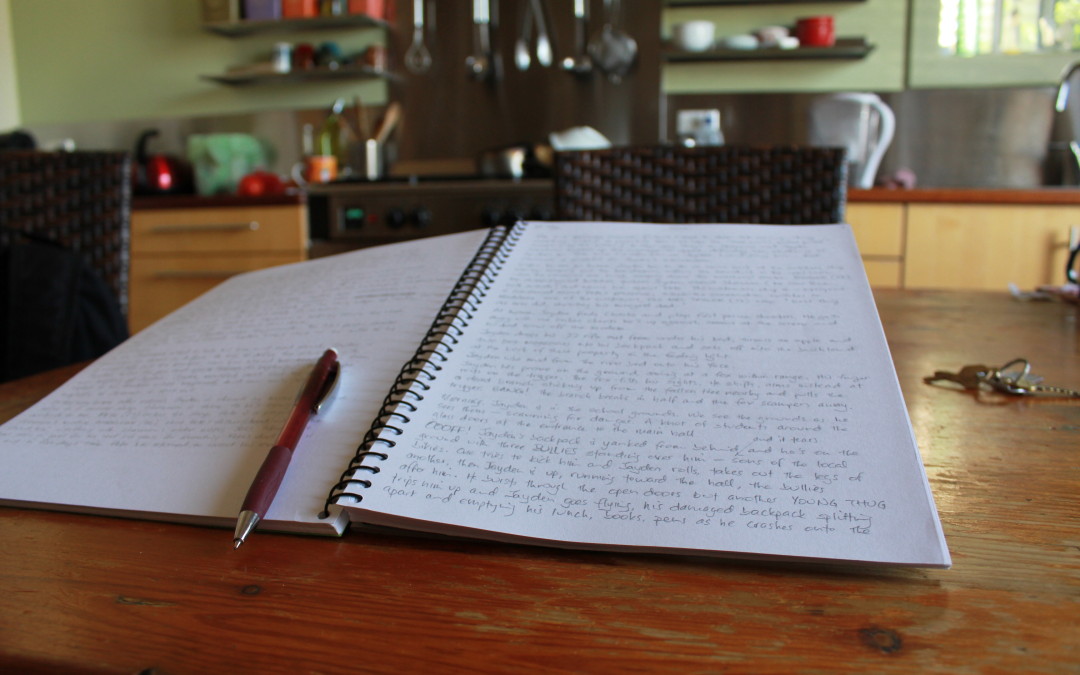
11,000 days of wishing (and stuttering)
At eight I was a boisterous, clever kid, in love with books, moon landings, and wrestling matches. Everything was exhilarating. Then, one afternoon in Grade 3, stranded and alone at the front of the class, my vocal chords seized when I was asked to read. I couldn’t do what everyone else took for granted – I stuttered. It hit me like a train. When I got home I cried for hours.
Over the next decade I died just about every time I opened my mouth. I felt monstrous, grotesque, always on the verge of humiliation. Stuttering was the ugliest form of clumsy I could imagine. And it kept happening all through school and into university and the workplace, and each time it did I felt like I was dying: the habits of mind we form as eight-year olds are very difficult to undo. The things we turn inward; the deals we make with ourselves.
Unaware of any of this, a reviewer called me ‘an expert in silences’ when my collection of short stories, The Colour of Kerosene, was released four years ago. Has stuttering left its trace in the way I write?
For decades, I tried to hide my stutter. The simplest, most effective way to do this was by not talking. I was the person at parties who would listen as others talked. Always wishing that I could trust my voice enough to open my mouth and let my stories out. But there had been too many years of feeling gutted by what I perceived to be an occasional smirk or grimace or, much worse, an embarrassed turning-away by a classmate, adult or teacher.
So I fretted at the edge of conversations and perhaps took more notice of what people said and how they said it. The non-verbal cues they gave and the reactions their words had. From eight to thirty-eight, I held myself back. To not speak burned almost as much as the humiliation of stuttering, for I had plenty to say. I’ve always loved ideas, always had questions, always felt the urge to challenge authority.
I came away from countless conversations angry and upset. Every day I spent hours reconstructing what I should’ve said in my head. Endless dialogues in which I debated, riposted, joked. In the world inside my head I spoke fluently; said everything I needed to, and then some.
I would also escape into worlds imagined by others whenever possible. I devoured books, my mind constantly full of fictional characters and the things they did and said. Add to this the endless rehearsed conversations and you have an apprenticeship in writing. It’s no wonder I love writing dialogue. It’s what I’ve trained my brain to do through 11,000 days of wishing I could speak ‘properly’.
An expert in silences?
An expert in silences? Maybe my characters do tend to leave things unsaid. Maybe there’s a certain obliqueness in the dialogue I write, an obliqueness that stems from the roundabout ways in which I talked. Another technique to avoid stuttering is to scan ahead for troublesome words and substitute safe ones. I’d use ‘female’ for ‘women’, ‘gold’ for ‘yellow’, ‘small’ for ‘little’. The problem with this is that even when I could get words out, I rarely said exactly what I meant, as each substitution introduced a subtle change of meaning or tone. By contrast, when I write I feel authentic in a way that speaking rarely allows.
Mine is a history of rawness. It’s a history of feeling marked, vulnerable and constantly on the verge of exposure and humiliation. It’s only lately that I’ve found a way to see my stutter as a kind of gift. As I look back at stories I’ve written, I think I can see its trace in the kinds of character I create. Up until now, none of them stutter, but each one is damaged in some way, or lost, feeling as if they don’t quite fit in or have missed the important milestones and rites of passage that everyone else seems to have achieved. They share a certain wistfulness but each is hopeful they will find some kind of redemption, a place to call home, and someone to share it with. Some of them carry an inkling of the idea that you need not be a victim of your own history. And that perhaps their lives can be turned around, their very being remoulded, even if these things seem to have the heft and momentum of freight trains or ocean liners, bearing down on preset courses.
For those who stutter, telling stories is one of the hardest things to do, because the act of telling draws attention to you and requires certain things – beginnings, crucial details, endings – that can’t be skipped in the way that parts of casual conversation can. Even today, telling a story requires me to summon up just about every ounce of courage I have.
But if you don’t tell your stories, they whither and die inside you.
I write to tell of the imagined worlds inside my head. My debut novel, First Person Shooter, is narrated by a 15-year-old boy with a stutter and a .22 rifle. It’s flowing, it’s fluent, and I’ve been waiting my whole life to tell it.
Cameron Raynes
Semaphore, South Australia
First Person Shooter can be ordered here; my website is here; and my Facebook page here. Enjoy!
